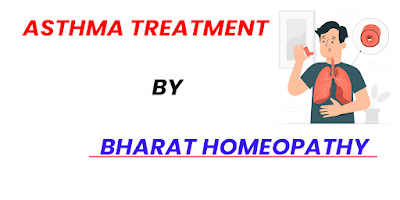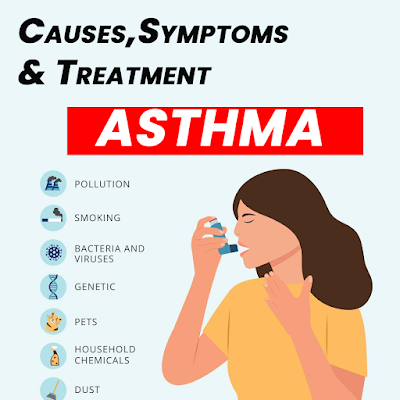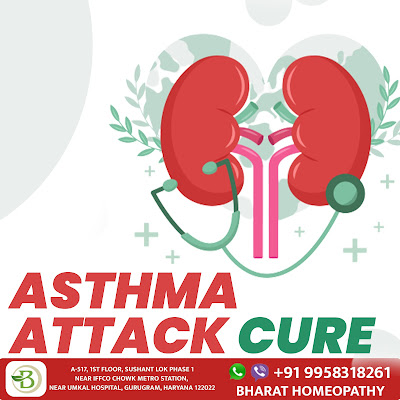A chronic respiratory disease that affects many people worldwide is asthma. The airways become inflamed, which narrows them and makes them more sensitive to external stimuli. This, in turn, leads to recurrent episodes of breathlessness, wheezing, chest tightness, and coughing. Asthma cure should be done by effective management strategies that help individuals lead fulfilling lives with minimal symptoms.
Symptoms: Symptoms of asthma can vary in severity and frequency. Some people experience mild, intermittent symptoms, while others may have more frequent and severe episodes. Common asthma symptoms include:
Wheezing: A high-pitched whistling sound when breathing, often most prominent during exhalation.
Breathlessness: Feeling short of breath, even after mild physical exertion.
Chest Tightness: A sensation of constriction or pressure in the chest.
Coughing: At night or early morning, often worsened by cold air or exercise.
Triggers: Symptoms of asthma can be triggered by various factors, which vary from person to person. Common triggers include:
Allergens: Pollen, dust mites, pet dander, mold spores, and cockroach droppings can trigger allergic asthma.
Irritants: Tobacco smoke, air pollution, strong odors, and chemical fumes can irritate the airways.
Respiratory Infections: Colds, flu, and other infections can exacerbate asthma symptoms.
Physical Activity: Intense physical exercise or activity can trigger symptoms, especially in cold or dry conditions.
Weather Changes: Cold air, humidity, and sudden temperature changes can provoke asthma episodes.
Emotional Factors: Stress and strong emotions can contribute to symptom worsening.
Medications: Certain medications like beta-blockers can trigger asthma in susceptible individuals.
Management: Asthma management aims to control symptoms, prevent asthma exacerbations, and maintain normal lung function. Key aspects of asthma management include:
Action Plan: Individuals work with their healthcare providers to develop a personalized asthma action plan, which outlines steps to take based on symptom severity.
Trigger Avoidance: Identifying and avoiding asthma triggers can significantly reduce symptoms. This might involve improving indoor air quality, managing allergies, and being cautious in cold or polluted environments.
Lifestyle Changes: Maintaining a healthy lifestyle through daily exercise and a healthy diet can help improve overall lung health.
Regular Check-ups: Periodic visits to a healthcare provider are essential to assess asthma control, adjust medications, and make any necessary changes to the management plan.
In conclusion, asthma is a persistent respiratory condition characterized by airway inflammation and the tendency to experience recurrent breathing difficulties. While asthma cannot be cured, its symptoms can be effectively managed through medications, trigger avoidance, and lifestyle adjustments. Individuals can lead active and fulfilling lives by working closely with asthma doctors while controlling their symptoms.
For More References Visit Us
https://bharathomeopathycure.blogspot.com/2023/08/breathing-without-limits-modern.html
https://www.minds.com/newsfeed/1541705534288171014?referrer=bharathomeopathy2810
https://www.storeboard.com/bharathomeopathy2
https://community.wongcw.com/posts/556356
https://bharat-homeopathy.jimdosite.com/





.png)


